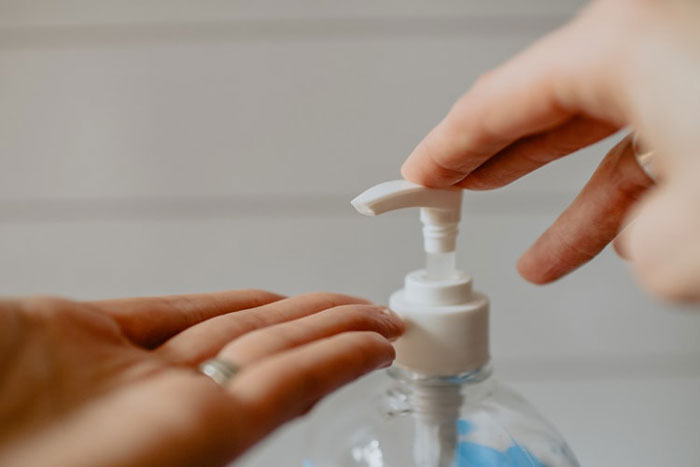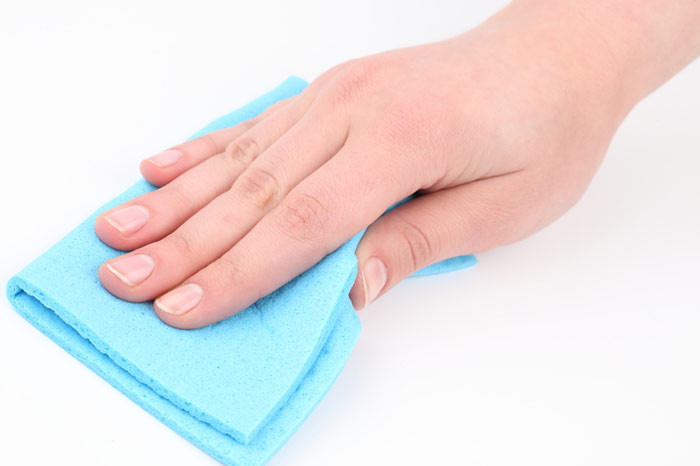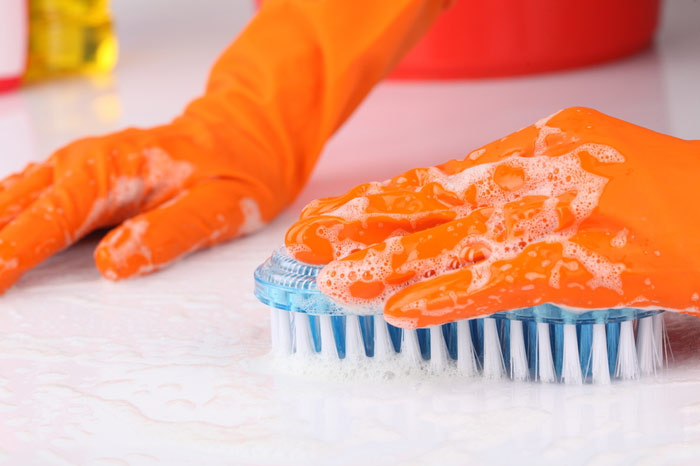You dedicate at least half an hour to cleaning every day, you always have a pack of wet wipes ready, and your best friends are cleaners and disinfectants. If you recognize yourself in this description, it’s time to think about whether the desire for cleanliness and order has turned into a neurosis.

What are compulsive states,
The endless stream of frightening information about the spread of coronavirus from the media and social networks makes many people feel uncomfortable. Some people manage to resist stress, while others have increased anxiety and get panic-stricken.
The situation in the world and general hysteria causes the symptoms of psychological diseases and obsessive thoughts, which people have long overcome. These symptoms may become aggravated or the first signs of an obsessive-compulsive disorder may appear. What is it?
Obsession means unwanted, haunting thoughts and images that disturb a person. People get so stressed out by these addicted ideas that they may develop problems with digestion, an elevated heart rate, a fever, or sweaty hands.
Compulsions are repetitive rituals that people see as an irresistible need. An obsession is a thought, and compulsion is an action by which people try to get rid of obsessive thoughts.
Obsessions, or super-valuable ideas, are the first step towards pathology. Anything can become a super-valuable idea: the idea of cleanliness, or the idea of a sporty toned body, the idea of vegetarianism… When a person begins to dedicate all their life to this idea and certain rituals associated with it, it poisons their life and brings suffering to the person and their surroundings.
If we consider the situation with the prevention of coronavirus, the manifestation of OCD will not just be frequent washing of hands – for a person with a disorder, this ritual can take a very long time. For example, a person suffering from cleanliness neurosis needs to go outside. They put on their coat and wash their hands, put on their hat and wash their hands, grab their shoes and wash their hands one more time. Compulsion can last for an hour or more, so a person devotes a huge amount of time to cleanliness. For such a person, rituals are a way of protection.
When and why the idea of purity may arise

Obsessive-compulsive disorders are a characteristic feature of insecure people. In addition, such people are highly sensitive, they are naturally anxious, they worry about everything, it is important for them to analyze everything: numbers and statistics are important to them, while their feelings seem to be turned off.
As a rule, in childhood, people who can develop a neurosis of cleanliness were brought up with an emphasis on a sense of duty and responsibility. From an early age, they were required to do everything perfectly well, to be a role model, to try and earn approval and praise for their impeccability.
Under the influence of parental prescriptions, when the mother deprives the kid of attention and ignores the child because they stained or spilled something carelessly, obsessive-compulsive disorder begins to develop in children. Such children try to do more, better, live up to expectations, and earn praise.
The irresistible desire to live up to other people’s expectations remains in adulthood. To develop a harmonious personality, kids in childhood must learn to play, to entertain themselves, to have fun and rejoice. If a child behaves like an adult from an early age and does important things, in adulthood it will be difficult for him to cope with life’s difficulties.
It is difficult for such people to relax later, they do not know how to do this, their need for rest is not satisfied. During the general panic due to the coronavirus, the idea of cleanliness and hygiene, of course, overwhelms these adults more often than anyone else.
The OCD process can be triggered by stress and psychological trauma, if a person has a tendency to develop such disorders. Do not forget about genetic predisposition. It is now believed that most neurological and psychological pathologies are in the genes.
Previously, it was believed that there was no difference in the manifestations of the obsession with cleanliness in men and women. However, in the late 90s, gender differences were discovered. Until the age of 60, such obsessions of cleanliness and cleanliness often occur in men, and after 60 years – in women.
How to protect yourself from obsessions

Obsessive-compulsive disorder cannot be completely eliminated, one can only make the neurosis less pronounced. People suffering from this disorder do not feel safe, even at home, so they are constantly trying to clean it up and bring it to an ideal state.
Neurosis of purity brings a lot of suffering to the person who experiences it and to his environment. After all, the whole life of such people depends on the performance of rituals: it is impossible to plan something, because you can’t even understand how long it will take to get ready and leave the house.
In order not to develop such a state, you need to check your feelings more often. Am I comfortable now? Do I feel safe? There is a good exercise that helps to become more down-to-earth. You need to close your eyes and feel how your feet are firmly attached to the ground, to the floor or any other surface.
You can take a few small steps and realize that you are firmly on your feet and securely pressed to the ground. 15 minutes of this exercise will help reduce anxiety. If you panic easily, do not watch the news because it can give rise to extreme anxiety. The most important thing you will need to know can be learned from relatives and friends. There is no need to drive yourself into hysteria.










